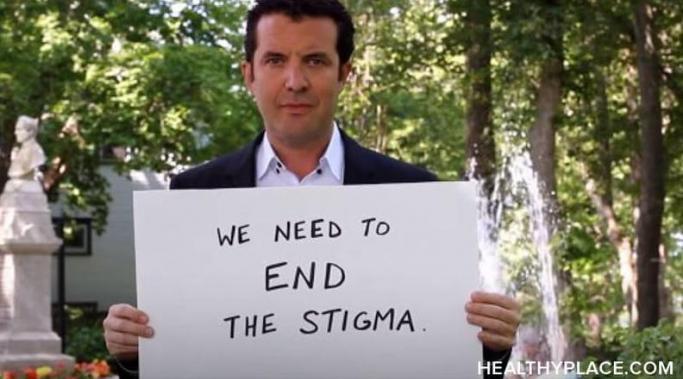The stigma of mental illness psychosis remains a serious concern for our society because the stereotypes and thoughts around this topic work to silence and stigmatize the people who have these experiences. Mental illness psychosis is highly stigmatized and it is up to all people to learn the facts about it to break down the inaccurate perceptions, especially so that those having been psychotic, may feel comfortable sharing their personal experience.
Surviving Mental Health Stigma
Doctors are affected by mental illness stigma, and, as mental health consumers, we run into this problem time and time again. I have heard countless horror stories of mental illness stigma affecting doctors and other mental health professionals, who are part of the patient's journey. However, there still remains a number of doctors and medical professionals who stay true to their passion for medicine. Here are some of my best and worst experiences with doctors who are affected by mental illness stigma and the ones who aren't.
Dealing with mental health stigma is a challenging and daunting task at times, and it may push us to our limits on a number of fronts. Not only do we often feel negatively about facing mental illness and self-stigma, but we have to deal with the stigma out there, which often hurts us emotionally and makes life all that more difficult to tackle. As we face the everyday, there are ways to deal with mental health stigma, whether it be from friends, family, society, or the media.
One, particular online bipolar assessment quiz (link to it) is creating mental health stigma on the Internet at the moment, particularly going viral on Facebook. I received the quiz on my Facebook feed yesterday, as a friend had posted it, and she commented that she received a zero percent chance that she has bipolar disorder. Having been diagnosed with bipolar disorder 13 years ago, I decided to comment on the quiz in a critical and constructive manner, but I also submitted my answers, and discovered that I, also, have a zero percent chance of having bipolar disorder. I sarcastically responded, “It is a good thing I took this quiz, and I better contact my psychiatrist for a second opinion. Thank you.”
Recently, I have developed an intense fear of flying, and it is quite odd because it never used to be this way. In my mid-20s, I flew to South Korea twice, and I even passed out during the entire flight, snuggled beside the emergency exit. Things have definitely changed over the years, and having a mental illness has made traveling quite a bit more daunting. Not only because of the fears that crop up, but from encountering stigma during my travels.
Mental health stigma affects parents with mental illness because society labels and judges them negatively. Parents with mental illnesses are often told that they are inadequate caregivers, simply because they have mental health challenges. They are accused of not being able to properly care for their children, especially on their own, and at times they are left battling for their right to be a parent. But parents with mental illnesses deserve more than mental health stigma.
I still fight the mental illness self-stigma that tells me not to let people know when I am affected by mental illness and feeling sick. When you have a mental illness, it is difficult to admit to other people that you are, indeed, affected by your illness. I feel weak at times and want to blame myself and my treatment team for my mental health relapse. And most of all, I fail to realize that this mental illness thing is going to affect me and there is nothing I can do about it.
I have a mental illness, but this does not make me any different than anybody else. It is stigmatizing for me to think otherwise. There are hidden stigmatized trenches in the way we perceive and think about our identity, and I also feel it is necessary to point out that just because you have a mental illness, you need not single yourself out as abnormal. You just plain have a mental illness and really it is not that big of a big deal.
As I walk through the day hospital to attend a new cognitive behavioral therapy (CBT) program, I feel a sense of embarrassment and shame. I wonder and search within myself to only ask, “How has it come to this?” As I stop by the nurse’s station to ask for directions to find my way to the group, I cannot help but sense that they must be assessing and judging me. There is a great deal of mental health stigma when accessing mental health resources for the purpose of rehabilitation and I believe a great majority of us have felt it at one time or another.
It seems more often these days that celebrities are coming out and admitting to the world that they have a mental illness (Do Celebrity Disclosures of Mental Illness Help End Stigma?). Some people feel that celebrities are glamorizing the issue and not demonstrating the realities of a person who lives with a mental illness (Is Having A Mental Illness A Gift?). However, I consider this act of honesty to be both empowering and courageous because their voices are not only prominent, but most importantly influential.









